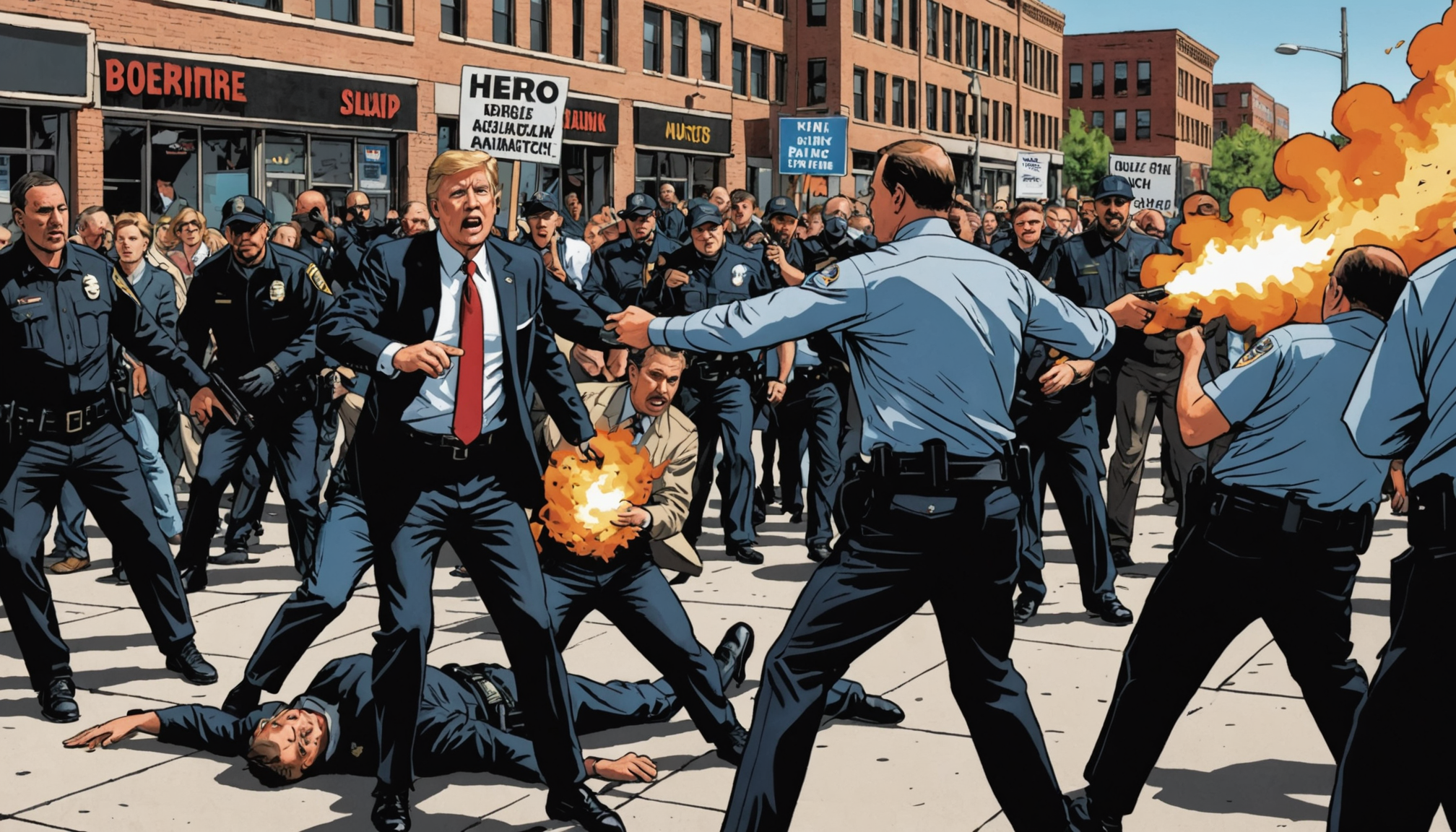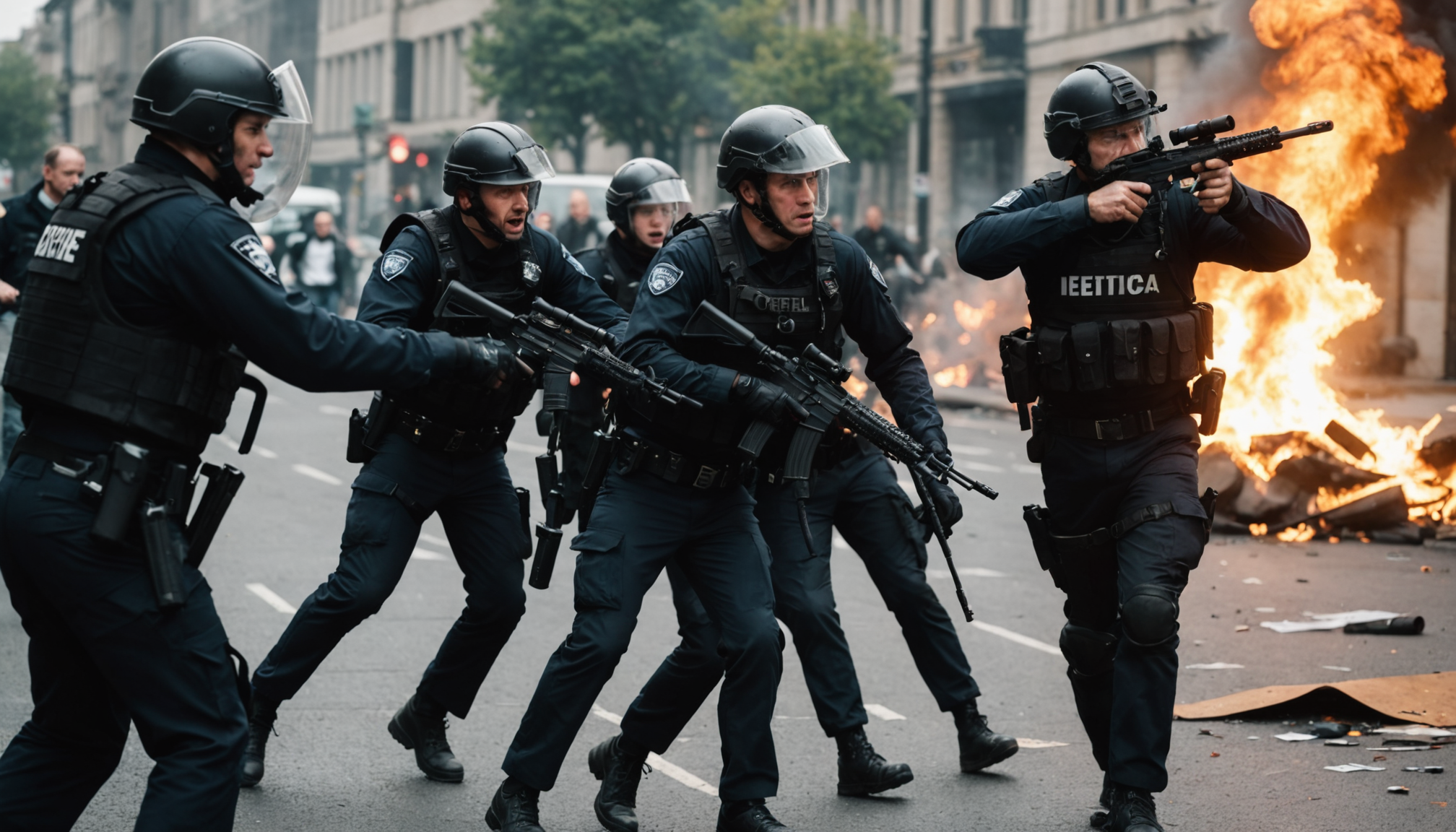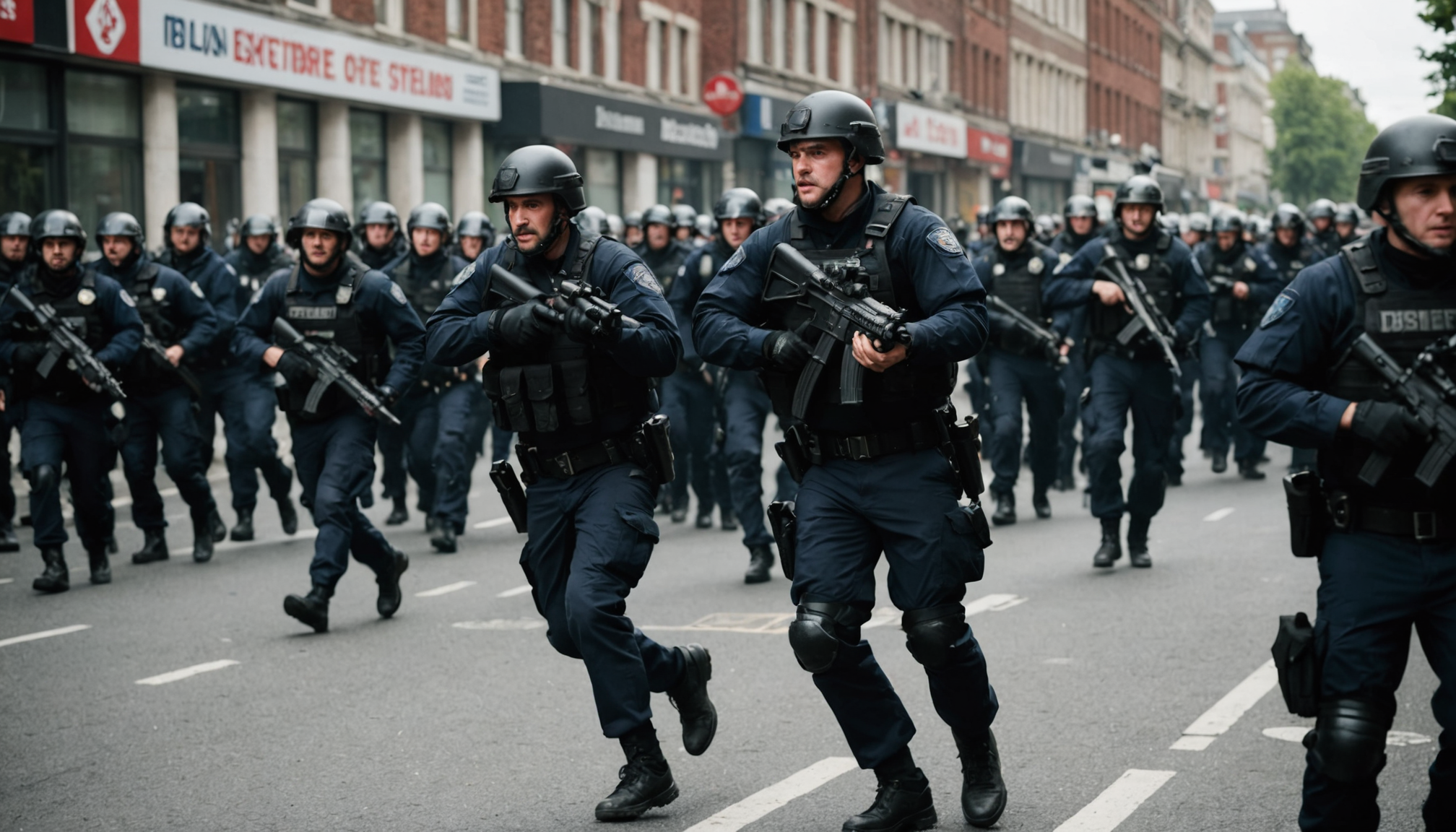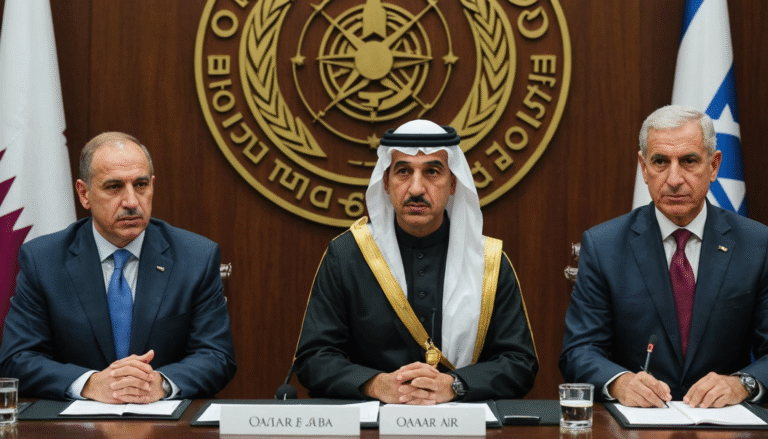
DENVER (AP) — Following the assassination of conservative activist Charlie Kirk, a wave of partisan blame erupted before authorities even identified a suspect. President Donald Trump quickly attributed the attack to “the radical left,” exemplifying what experts describe as a dangerous pattern in America’s polarized political landscape. [Source](https://www.durangoherald.com/articles/blame-game-after-acts-of-political-violence-can-lead-to-further-attacks-experts-warn/)

Security experts warn that hastily assigning political blame for violent acts could accelerate a dangerous cycle of retribution and further attacks.
“What you’re seeing now is exactly how the spiral of violence occurs,” said Robert Pape, political scientist and director of the Chicago Project on Security and Threats at the University of Chicago.
The Kirk assassination and political blame
Authorities arrested 22-year-old Tyler Robinson of Washington, Utah, for the shooting. While a registered voter, Robinson was not affiliated with any political party and hadn’t voted in the last two general elections. Officials noted Robinson had recently become more political and expressed negative views about Kirk.
Court documents revealed Robinson carved taunting phrases into his ammunition, including one bullet casing marked with “Hey, fascist! Catch!” and others referencing memes and online video games.
The 31-year-old Kirk, a father of two young children, was considered an icon of the populist right, especially among young conservatives, and a key Trump ally.
- Some conservatives called for calm following Kirk’s death
- Others, including Alex Jones and Steve Bannon, called for “war”
- Rep. Mary Miller (R-Illinois) blamed “the radical left” and “corrupt media”
- Many prominent Democrats urged calm on both sides
- House Speaker Mike Johnson also called for lowering the temperature
Political violence doesn’t fit neat categories
Experts emphasize that political assassins often defy simple partisan categorization. Bruce Hoffman of Georgetown University noted the FBI has created a new category called “Nihilistic Violent Extremism” to track attacks without clear political motivation.
“Extremism is becoming a salad bowl of ideologies where you can pick whatever you want,” Hoffman said, adding that lone wolf attacks increasingly lack connection to organizations with defined political goals.
The case of Thomas Mathew Crooks, who shot Trump at a Pennsylvania rally last year, illustrates this complexity. The FBI found little record of Crooks’ political stances and discovered he had researched then-President Joe Biden as a potential target.
“What they all share is a political ecosystem that’s very permissive about violence towards political rivals,” said Arie Perlinger, professor of security studies at the University of Massachusetts-Lowell. “Because politicians are incentivized to use extreme rhetoric and extreme language, that leads to demonization of political rivals.”
The political violence landscape
Trump remains a prominent voice in polarized rhetoric. Shortly after Robinson’s arrest was announced, Trump stated on Fox News: “The radicals on the right oftentimes are radical because they don’t want to see crime. … The radicals on the left are the problem.”
According to the Anti-Defamation League, all 61 political killings in the U.S. from 2022 through 2024 were committed by right-wing extremists. This pattern changed on January 1, 2025, when a Texas man flying an Islamic State flag killed 14 people in New Orleans.
Hoffman noted that historically, the right has been responsible for more attacks on people than the left, partly because left-wing radicals typically target property rather than individuals, and because the extreme right has organized groups like militias.

He added that Trump’s pardoning of over 1,500 people convicted of crimes during the January 6, 2021, Capitol attack may have created “a belief in certain quarters that, if you engage in violence, the slate can be wiped clean.”
Left-wing violence also exists
Political violence has come from the left as well. In 2017, a 66-year-old man who supported leftist causes opened fire at a congressional Republican baseball practice, critically wounding Rep. Steve Scalise, who eventually recovered.
In 2022, an armed man angry over a leaked abortion rights ruling attempted to enter Supreme Court Justice Brett Kavanaugh’s home. The man backed off when he saw U.S. Marshals, called his sister, and was persuaded to surrender to police.
Background
The increasing polarization of American politics has created an environment where extreme rhetoric flourishes. Experts point to a political ecosystem that increasingly tolerates, and sometimes encourages, hostile attitudes toward political opponents.
This atmosphere can push unstable individuals toward violence. Pape noted that approximately 40% of those who perpetrate political violence have a mental illness.
“When there is strong support in the public for political violence, that nudges people over the edge because they think they’re acting in community interest,” Pape explained.
The FBI’s creation of the “Nihilistic Violent Extremism” category reflects the evolving nature of political violence, where clear ideological motivations are increasingly absent or mixed with personal grievances and online influences.
What’s next

Security experts emphasize the need for de-escalation from all political leaders. Pape expressed concern about Trump’s one-sided condemnation of left-wing violence, warning it could further inflame conflict.
He compared this approach to when some liberals condemn all Trump voters as racists, noting that such broad-brush characterizations only deepen divisions. “The constituents of whoever is doing this, it emboldens them,” Pape said. “What we need to do is convince Trump to do more restraining of his side because we’re really in a tinderbox moment.”
As the nation grapples with these incidents of political violence, experts warn that the immediate rush to assign blame along partisan lines creates a dangerous feedback loop that could trigger more attacks.
The challenge ahead lies in breaking this cycle by encouraging political leaders across the spectrum to moderate their rhetoric and explicitly reject violence as a political tool.





